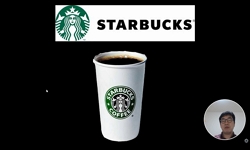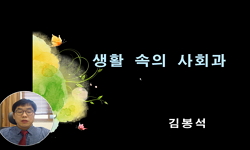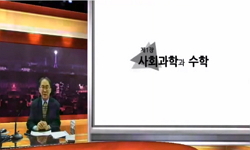본 연구의 목적은 사회과 교육과정 내 ‘핵심개념’ 관련 연구물을 메타 분석하여 우리나라에서 논의되는 사회과 핵심개념의 특징을 탐색하고, 그 시사점을 찾는 것이다. 이를 위해 총 18편...
http://chineseinput.net/에서 pinyin(병음)방식으로 중국어를 변환할 수 있습니다.
변환된 중국어를 복사하여 사용하시면 됩니다.
- 中文 을 입력하시려면 zhongwen을 입력하시고 space를누르시면됩니다.
- 北京 을 입력하시려면 beijing을 입력하시고 space를 누르시면 됩니다.
https://www.riss.kr/link?id=A109091005
- 저자
- 발행기관
- 학술지명
- 권호사항
-
발행연도
2024
-
작성언어
-
-
주제어
메타분석 ; 사회과 ; 핵심개념 ; 스트랜드 ; 간학문적개념 ; Meta-Analysis ; Social Studies ; Core Concepts ; Strands ; Interdisciplinary Concepts
-
KDC
370
-
등재정보
KCI등재
-
자료형태
학술저널
-
수록면
71-88(18쪽)
- 제공처
-
0
상세조회 -
0
다운로드
부가정보
국문 초록 (Abstract)
본 연구의 목적은 사회과 교육과정 내 ‘핵심개념’ 관련 연구물을 메타 분석하여 우리나라에서 논의되는 사회과 핵심개념의 특징을 탐색하고, 그 시사점을 찾는 것이다. 이를 위해 총 18편의 논문을 추출하여 핵심개념의 정의, 종류, 역할에 대하여 분석하였다. 분석 결과는 다음과 같다. 첫째, 핵심개념이라는 표현이 2015 개정 교육과정 이후 널리 사용되고 있지만, 연구자가 속해 있는 저변마다 다른 의미로 활용되고 있음을 확인할 수 있었다. 주로 교육과정 총론 개발진 및 해외문헌을 참고한 연구에서는 ‘추상적인 개념 수준’으로 핵심개념을 정의하였고, 사회과 내부적으로는 7차 교육과정을 기점으로 NCSS의 스트랜드를 차용하여 ‘일상 세계와 관련된 주제 수준’으로 핵심개념을 정의하였다. 우리나라 2015 개정 사회과 교육과정에서 실제 나타난 모습은 ‘영역별 소재’ 로 정의되었다. 둘째, 핵심개념의 종류는 핵심개념을 어떻게 정의하는지에 따라 다르게 나타났다. 핵심개념을 보편적이고 추상적인 개념 수준으로 정의할 때는 소수의 간학문적 개념으로 제시되었고, 우리나라처럼 핵심개념을 영역별 소재 수준으로 정의할 때는 다수의 영역별 소재로 제시되었다. 셋째, 핵심개념은 교육과정 문서 내에서 영역명으로 사용되거나, 탐구를 이끄는 매개체, 그리고 영역간의 연결고리로 활용될 수 있었지만, 우리나라 교육과정 문서에서는 그 역할이 잘 드러나지 않았다. 이러한 측면에서 우리나라 초등사회과 핵심개념을 설정하기 위한 논의점 및 추수연구를 제안하였다.
다국어 초록 (Multilingual Abstract)
The purpose of this study is to make a meta-analysis of studies related to ‘core concepts’ within the social studies curriculum to explore the characteristics of the core concepts of social studies discussed in Korea and to find their implications...
The purpose of this study is to make a meta-analysis of studies related to ‘core concepts’ within the social studies curriculum to explore the characteristics of the core concepts of social studies discussed in Korea and to find their implications. For this purpose, 18 papers were extracted and the definitions, types, and roles of key concepts were analyzed. The analysis results are as follows. First, although the expression core concept has been widely used since the 2015 revised curriculum, it was confirmed that it is used with different meanings according to the group which the researcher belongs. Directions of national curriculum developers and foreign literature researchers defined core concepts at the ‘abstract concept level’. And since the 7th curriculum, the social studies department internally applied the NCSS strand and defined core concepts at the ‘subject level related to the everyday world’. The appearance of the Korea’s 2015 revised social studies curriculum was defined as ‘domain-specific material’, which is the lowest level. Second, the types of core concepts appeared differently depending on how the core concepts were defined. When defining core concepts at the level of universal and abstract concepts, they were presented as a small number of interdisciplinary concepts. And when core concepts were defined at the level of materials by domain, as in Korea, they were presented as multiple domain materials. Third, core concepts could be used as domain names within curriculum documents, as a medium to lead exploration, and as a link between domains, but their role was not clearly revealed in Korea’s curriculum documents. In this respect, discussion points and future research were proposed to establish core concepts of elementary school social studies in Korea.
목차 (Table of Contents)
- Ⅰ. 들어가며
- Ⅱ. 연구 방법
- Ⅲ. 메타 분석을 통해 살펴본 사회과 핵심개념의 특징
- Ⅳ. 결론 및 제언
- Ⅰ. 들어가며
- Ⅱ. 연구 방법
- Ⅲ. 메타 분석을 통해 살펴본 사회과 핵심개념의 특징
- Ⅳ. 결론 및 제언
동일학술지(권/호) 다른 논문
-
- 한국사회과수업학회
- 박지수(Jisu Park)
- 2024
- KCI등재
-
초등 사회과수업에서 학생들의 히스테리 증상에 대한 라깡의 정신분석적 해석
- 한국사회과수업학회
- 김미혜(Mihye Kim)
- 2024
- KCI등재
-
사회과에서 공공기관에 관한 대안적 교육 방안 탐색 - 공공가치론에 기초하여 -
- 한국사회과수업학회
- 조의호(Eui Ho Jo)
- 2024
- KCI등재





 스콜라
스콜라






